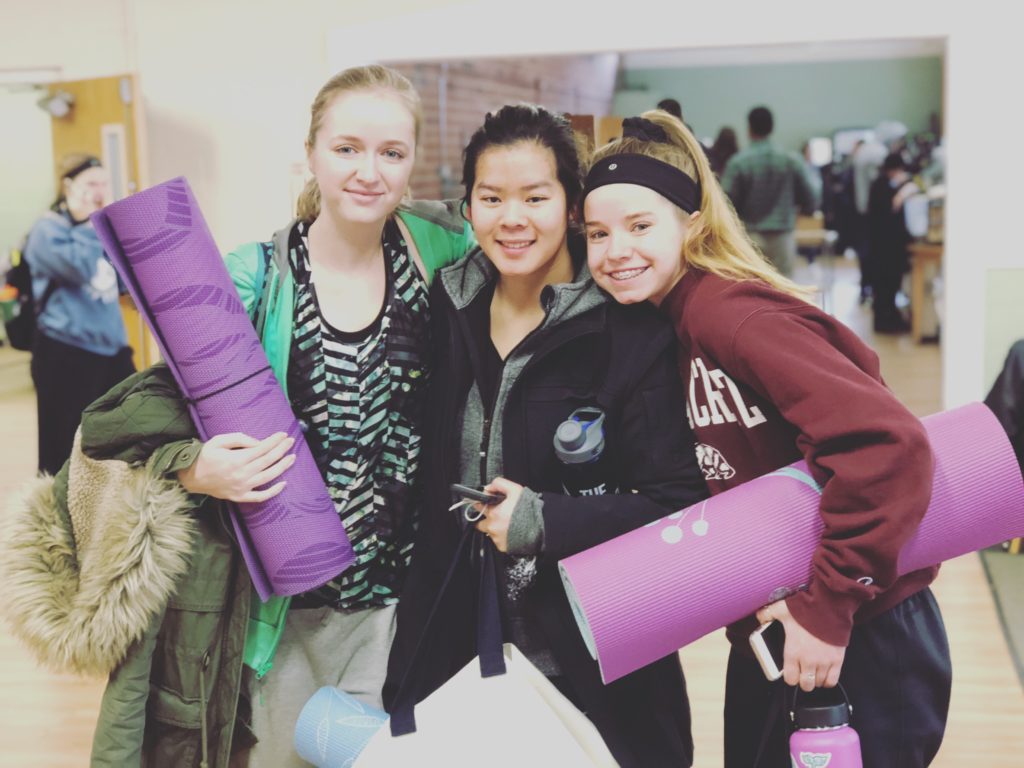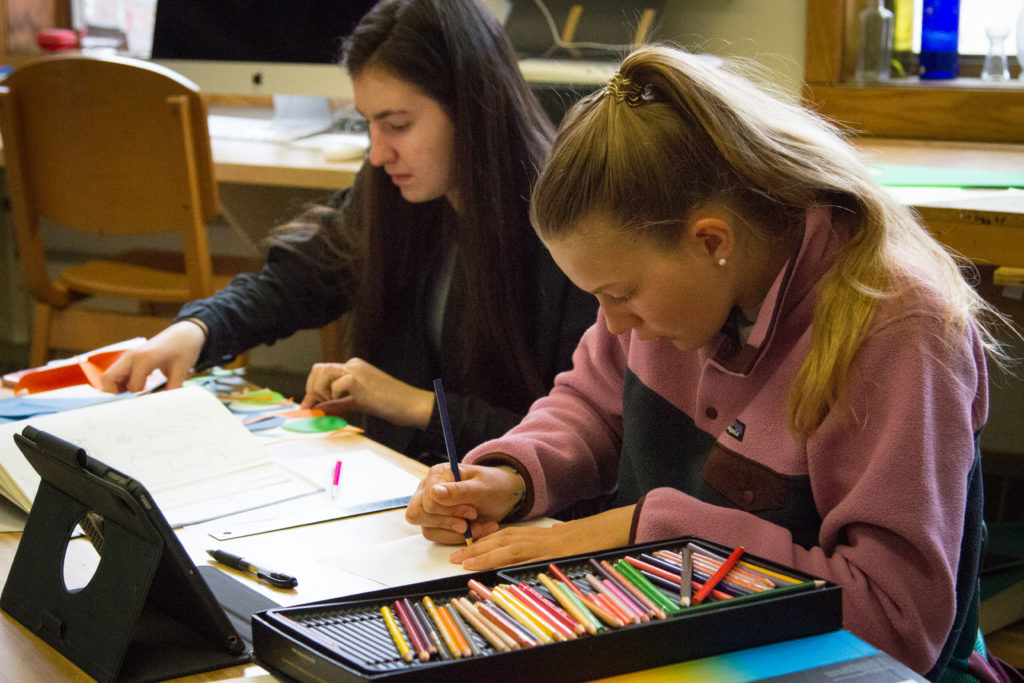Every month of the academic year has its own stress points. For our community, April’s list is long, but also manageable with focused effort.
A few of the top stressors students might face this month include final college decisions for seniors; beginning college searches for juniors; applying for leadership opportunities as sophomores; or choosing next year’s roommate as a freshman. These new challenges and opportunities fall on top of ongoing responsibilities for academic work, athletics, co-curricular activities and social relationships.
What do we offer for our students to help them manage their stress on a residential campus? Everyone manages their stress differently, and finds release from their stressors through different actions and activities. There are a variety of opportunities for students to unwind, find calmness, and collect themselves throughout the day. Below are a few suggestions from the Student Life Office.

Mindfulness Practices:
A few minutes each day of mindfulness practices has been scientifically proven to have a dramatic impact. Mindfulness practices and reminders are readily available to the New Hampton School community.
- Yoga on Tuesday and Thursday mornings in our dance studio is a great place to start;
- Free apps like Headspace, Insight Timer, or Calm can help you pause for a few moments to breathe and meditate in a quiet space;
- Use any of the mindfulness techniques taught in Mrs. Tyson or Ms. Lea’s classes, or those shared at School Meeting by Mrs. Tyson or Mrs. Churchill;
- Remember to take a breath before any assessment or presentation begins–it will help your mind focus and calm any anxieties.

Get Your Heart Rate Up:
Physical exercise and activity is known to boost mood and energy. Many co-curricular activities lead to this naturally, however, students might seek additional physical activity throughout their day.
- Take advantage of co-curricular time and push yourself physically;
- Wake up in the morning and do 20 jumping jacks, 20 push-ups, and 20 squats before leaving for class–ask your roommate to join you.

Organize Your Space and Self:
Organization can help some people find calmness and peace. For some students, spending some time organizing their personal space or their calendar might help them reduce stress.
- Create an organized study area;
- Make a list and prioritize what items need to be completed first;
- Set a timer or alarm on your phone or iPad during Study Hall to mark when to move on to the next assignment;
- Use free-time to finish smaller assignments if needed.

Focus on the Positive:
Attitude is everything. Focusing on a slight shift in your attitude can change the way we process activities and approach new ones, and this conscious shift can change outcomes into opportunities.
- Know that everything is going to be ok, even if you don’t win the game, ace the test, or say your lines just right.
- As the saying goes, “This, too, shall pass.”
- Know you’re not alone. All of us have busy and stressful times in life, and learning how to work through those times is a life skill that will get easier with time.
Stress management can sometimes be overwhelming to understand, especially if the cause of the stress isn’t understood. Part of the process is learning more about ourselves and what triggers general levels of stress or worry. There are opportunities on campus through classes, advisory groups and student life programming for students to learn more about themselves and pursue strategies to take control of certain aspects of their life.
In addition, students are surrounded by peer and adult resources on a residential campus. While we encourage students to take initiative and access the resources available to them, we also remind them to pause, breathe, and ask for help if they need it.




